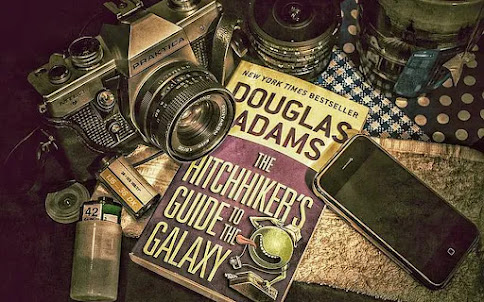The Kind of storytelling that economics need. Science fiction opens the mind to other ways the world could be :
Economists ought to read more science fiction. All that fun, futuristic stuff : phasers, lightsabers, replicants, intergalactic federations, extraterrestrial beings in hovercrafts. ''Please don't write in with the inevitable joke : '' But economics is science fiction! ''
One reason economists should read more science fiction is that sci-fi opens the mind to other ways the world could be. That's valuable in general, but sci-fi is especially useful for economists, because it often delves into topics that occupy them, pushing those ideas to their logical extremes.
For example : What if money went away? What if corporations became more powerful than governments? How would you reorganize society if no one needed to work?
This isn't idle speculation. Strange things happen far more often than we like to think. Reading sci-fi sensitizes us to the possibility of radical change. Society needs such sensitivity in economists, among others. The 9/11 commission wrote in Chapter 11 of its report that it is '' crucial to find a way of routinizing, even bureaucratizing, the exercise of imagination.''
But sci-fi doesn't just brace people for extreme change; it can also encourage them to bring it about. Science fiction is '' a political resource, as it empowers the critic and the radical to see the present as the amenable to conscious transformation,'' William Davies, a professor at Goldsmiths, University of London, wrote in 2018 book that he edited, '' Economic Science Fictions.''
Consider the corporation. It's a failure of the imagination to take today's corporate form as a given.
A corporation is an entity with [1] potentially infinite longevity that has [2] ''corporate personhood,'' according to the Supreme Court of US, and [3] Protects its owners from legal liability for its misbehaviour.
It's the kind of odd arrangement you might expect to find on Kurt Vonnegut's Tralfamadore.
Economists are notoriously unimaginative people,'' Ha-Joon Chang, an economist at the University of Cambridge, wrote the first chapter of Mr. Davies's book.
Many economists, he wrote, ''believe in the fiction that they are practising ''science'' and cling to the false notion that ''progress in science [and thus technology] is going to - or at least can - solve virtually all economic problems.''
Science fiction teaches otherwise. Chang wrote for The Guardian in 2015 that his life was changed by Douglas Adams's ''The Hitchhiker's Guide to the Galaxy,'' a comic sci-fi novel from 1979 that, as he described it, ''off-the-wall humour and industrial grade satire to discuss serious issues.''
My colleague Paul Krugman, a Nobel Laureate economist, is famous in sci-fi circles for a paper he wrote in 1978 as a struggling assistant professor, ''The Theory of Interstellar Trade,'' in which he considered how transporting goods close to the speed of light might affect interest rates on those goods.
Throwing shades on others in his profession, Mr. Krugman wrote : ''It should be noted that while the subject of this paper is silly, the analysis actually does make sense. This paper, then, is a serious analysis of a ridiculous subject, which is of course the opposite of what is usual in economics.''
The Publishing of this Master Essay continues, in the future. The World Students Society thanks author Peter Coy.

.png)


0 comments:
Post a Comment
Grace A Comment!